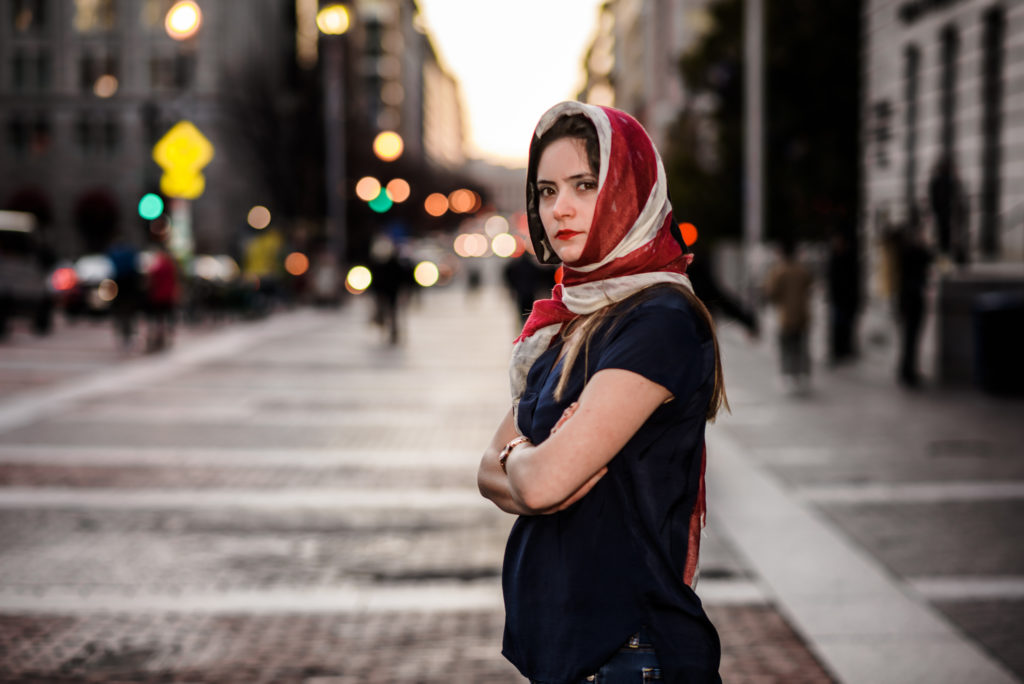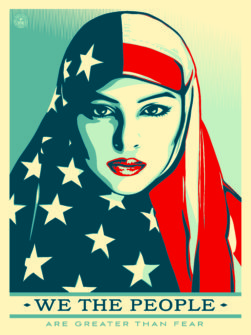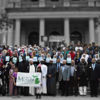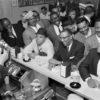
“The political and intellectual history of modernity,” writes historian Robert Orsi, “is also always a religious history.” However, as significant and diverse recent scholarship is now bringing to light, narratives around the political, intellectual, and religious history of modernity often serve not only to illuminate the past, but also to obscure it through the authorization of specific forms of experience and knowledge.
This symposium, entitled “Decolonizing Narratives, Denaturalizing Modernity,” aims to highlight recent scholarship that complicates received notions around the history of modernity. While focusing on distinct temporal, geographical, and religious contexts, in their shared attempts to uncover histories hidden by the dominant discourses of modernity, the authors featured in this symposium uniformly challenge the naturalization of modernity’s emergence and indicate that that the history of modernity has always been (and remains) fundamentally contested.
In the current political climate in the United States, Muslims are the most marginalized religious community. There are numerous misconceptions about American Muslims. One is that we (I self-identify as both a Muslim and a scholar of religion) are relative newcomers to the United States. Another is that we haven’t contributed anything of value to what it means to be American. A third is that at best American Muslims are un-American, and at worst they are actively seeking to overthrow the government and bring in the rule of Islamic law.
My new book, Muslims and the Making of America, begins with this deliberately provocative sentence: “There has never been an America without Muslims”. The first Muslims documented in the United States were slaves of the Spanish conquistadors. One of them died in what is now New Mexico in 1539, some 80 years before the Pilgrims arrived. Then came the transatlantic slave trade, where an estimated 10% of slaves from West Africa were Muslim. To take only one example, Ayuba Suleiman Diallo, also known as Job ben Solomon, was brought to Annapolis in 1730. His story was told in a narrative published in London in 1734 by Rev. Thomas Bluett. In 1734, George Washington, the “Father of our Country”, was a two-year old toddler, and across the Atlantic people were reading about a Muslim slave in the colonies. And like the presence of Muslims from the very beginning, the founding mythology of our country ignores the genocide of the native population, and the enslavement of Africans who literally helped to build this country.
After slaves, Muslims came as immigrants from the Ottoman Empire. The first mosque in America is probably the one in Biddeford, Maine, built in 1915 by Albanians who had come to work for a local textile mill. That’s important to remember, that Muslims were sometimes brought here to work. Not that they came looking for work, but that they were recruited and brought here, in short that they were invited.
The history of our country is a multicultural, multiethnic, multireligious one. But that history is often not told. In Muslims and the Making of America, I tell some of this history, which of course is a religious history as much as it is a social history. It is also a shared history. And that for me is important. We are connected to each other, to each other’s stories. From Edward Said, I learned the line from the poet Aimé Césaire: “there is room for all at the rendezvous of victory.” I think we do this when we retell our stories as shared stories, not telling our single stories as if they were the only ones.

One example of this connection came on January 27, 2017, when a week after his inauguration, President Trump ordered that the United States ban travelers and refugees from seven Muslim-majority countries (Iraq, Syria, Iran, Libya, Somalia, Sudan, and Yemen). He did this at 4:42 p.m., almost at the end of the business week, after making comments that morning for International Holocaust Remembrance Day that made no mention either of the Jews or of anti-Semitism. Thousands of people protested the ban at airports across the country in the following days. I flew back to Los Angeles from Washington, DC, on January 29, and those protests were quite powerful to see, people standing up for Muslims not just or only as refugees or immigrants, but as Muslims. That was extraordinary. What has also been amazing to see is the response from the American Jewish community. They have been at the forefront of the protests, both because they know that the commandment that is repeated more than any other commandment in the Torah is to not oppress the stranger, and because they know with the painful history of the Holocaust of where the road of prejudice and intolerance ends. Moreover, just as hate crimes against Muslims continue to rise, so too in 2016, over half of the hate crimes committed against a religious group in America were against Jews. The actions of the Trump administration have brought together Muslims and Jews in a way that I have never seen in my twenty years of living in America.
On the academic side of things, we have the concept of intersectionality, which for me is best expressed in the words of the blessed John Berger, who in a 2002 essay wrote the following:
“Most analyses and prognoses about what is happening are understandably presented and studied within the framework of their separate disciplines: economics, politics, media studies, public health, ecology, national defence, criminology, education, etc. In reality each of these separate fields is joined to another to make up the real terrain of what is being lived. It happens that in their lives, people suffer from wrongs which are classified in separate categories, whereas they suffer them simultaneously and inseparably.” (From “Where Are We?”, in Hold Everything Dear (Pantheon Books: 2007, p. 44).
We need to better understand our connections, both between our disciplines, and among ourselves.



